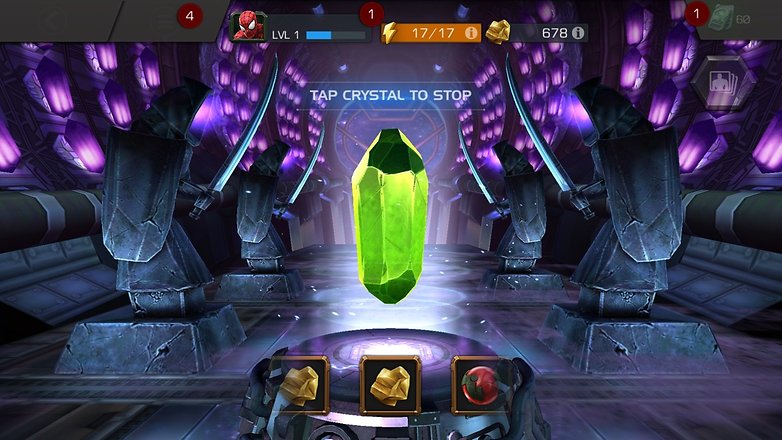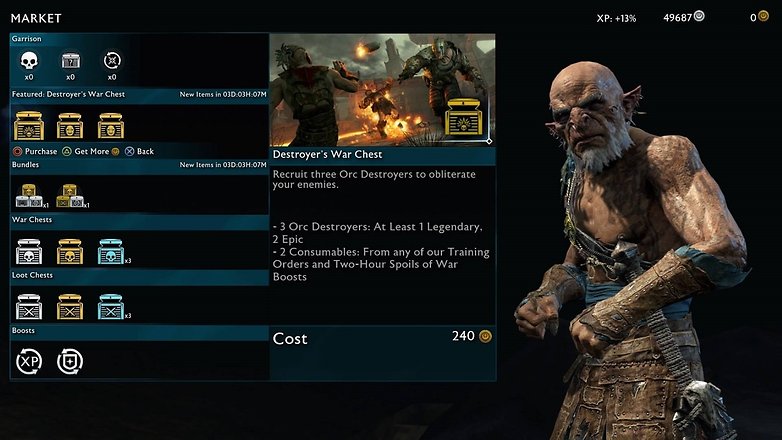Video games have a gambling problem, the intervention is overdue

Nowadays, the idea of simply buying a video game, owning it and playing it at your leisure seems naive and quaint. Increasingly, in-game content and rewards are doled out online via random packages, or 'loot boxes', which could contain rich rewards - or be worthless. If you think this sounds like gambling, you're not alone. International gambling regulators are teaming up to fight this unethical profit model...and it's about time.
Fifteen European gambling regulators have joined forces with the Washington State Gambling Commission in an effort to combat "the blurring of lines between gaming and gambling". If you've played games on any platform lately, you've probably run into this kind of thing.
In the game you have the opportunity to get a reward, usually paid for and often referred to as a 'loot box' with a hidden prize inside...it could be a skin, treasured item, new character, or anything you want...it could also be something you definitely don't want, like a copy of something you already have. They only way to know is to open (and pay for) the box and try your luck.

Sounds risky, doesn't it? Almost like you're taking...a gamble? The joint declaration from the gambling regulators seems to think so:
"Concerns in this area have manifested themselves in controversies relating to skin betting, loot boxes, social casino gaming and the use of gambling-themed content within video games available to children."
Gambling can be thrilling and addictive, and it's all too easy to manipulate the brain's risk-reward mechanism to get someone hooked, always forking over a little more cash in the hope that the next prize is the big payout (in this case, your most prized in-game item, character, etc.)
This kind of monetization was taken for granted in many freemium mobile games, where it was seen as a kind of necessary evil, a way to make money from something that people would only download for free. While I'm no fan of the freemium model even for mobile games, it's when loot boxes and skin gambling became standard in big-budget AAA games from top publishers that the outrage really started...not only were you being pushed to gamble on in-game content...but it was for a game that you'd already paid around $60 for!

After two blockbuster titles, namely Star Wars Battlefront II by Electronic Arts, and Middle Earth: Shadow of War by Warner Bros were found to be lousy with loot-boxes and paid-for random rewards. Fans revolted in a spectacular backlash that saw loot boxes eventually removed (after much grumbling and dissemination from the publishers) from both games. But that was a simple consumer backlash. Now, whole countries are getting involved, treating it as a public health issue.
The first step is admitting the problem
The trouble with loot boxes and similar gambling mechanics, is that it's just so much more profitable in the long term compared to just selling a full game at retail price, that publishers aren't going to let go of it without a fight. Many game companies have largely transitioned from selling complete games and instead offer 'live services', effectively subscriptions to receive content in dribs and drabs over a longer period of time, usually paid for over and over again. It can still cost as much as a complete game up front, however.

The Entertainment Software Rating Board, whose job it is to rate games as age appropriate (i.e., an 'adult' rating on a game with gambling in it) has defended the practice of loot boxes, likening them instead to buying baseball cards, in which you pay for some cards but you don't get to see what's in the pack first.
The ESRB stance doesn't stand up to close scrutiny, however. An investigation on the issue commissioned by the Australian government recently published its results. The committee stated: "loot boxes provide games companies with an unregulated way of exploiting gambling disorders amongst their customers." And in what appears to be a direct reference to the ESRB's protests: "Spending large amounts of money on loot boxes was associated with problematic levels of spending on other forms of gambling. This is what one would expect if loot boxes psychologically constituted a form of gambling. It is not what one would expect if loot boxes were, instead, psychologically comparable to baseball cards."
Enough players are attending to spending money on in-game gambling, but the bigger gambling problem lies with the publishers, who are addicted to receiving it. Already, we see signs of strong resistance against regulation from the games industry itself.
EA vs Belgium
Similarly, while Electronic Arts may have backed down over fan outrage in the case Star Wars Battlefront 2, it's prepared to fight tooth-and-nail on other fronts. Belgium outlawed loot boxes last April, claiming that they are a form of gambling. EA ignored this with FIFA 19, which offers packs of random virtual footballers, and may be taken to court over this defiance.
There's a lot of money at stake with something like FIFA, with players willing to spend over and over to build up their dream team...in one standout example, a single player once spent over $10,000 in just two years. You can see why EA won't go down without a fight on this.
The tide turns against loot boxes
Maybe EA thought that it could stand up to little old Belgium, but the situation has changed. With 15 European countries and the US (via the Washington State Gambling Commission) working together, penalties can be harsher and more wide-ranging than before. It's also notable that some countries which previously stated they did not consider loot boxes to be gambling, such as the UK and France, appear to have shifted on the issue. Will we soon see more countries change their position?
Loot boxes aren't just bad for gamers...they're bad for games
There are games out there that proudly tout themselves as 'addictive' in their ads. An interesting word to claim for oneself. But addiction isn't the same as fun, and a video game that's built to exploit addiction and get you to keep spending money on it will eventually withhold your fun behind a paywall. Eventually. The first few hits are always free, of course. Then you've got to pay for your fix.
I've written about this before with regard to mobile games, but this kind of predatory monetization isn't limited to the mobile market anymore, and we're now getting $60 games that are actively set up to get you hooked, and then have progression systems that become deliberately frustrating or unfair at regular intervals, putting pressure on you to spend money on a loot box that just might contain the right item or character you need to get to the next level. If the loot box didn't have anything you wanted, well...there's always the next one. And there's a special offer on this season!

Regardless of whether you have sympathy for people who get hooked on spending money on loot boxes and the like, the fact is that the presence of loot boxes makes games objectively worse to play. Instead of being designed and calibrated to be fun and challenging throughout so as to justify the purchase of the full product, instead, they become a finely tuned machine to extract money from players by putting pressure on psychological pain points, with a trip to the in-game shop to provide temporary relief.
In a game where you can earn items either by repeating tasks in the game, a.k.a. grinding, or simply by paying...then the publisher has a huge vested interested in making the first option as boring and unappealing as possible. A good amount of challenge is part of the fun, but only if you can overcome it with your own skill. Gamers, you're being milked.
Hopefully, more countries will get involved in reigning in the worst excesses of the industry that threatens to fatally poison the quality of games as an entertainment medium or art form. Plenty of alternative forms of monetization existed that may not be so psychologically exploitative or fantastically lucrative, but will prove profitable enough when combined with one key element - a good, honest game.
What do you think of video game loot boxes? Should they be regulated as a form of gambling?
Source: UK gambling commission




Only positive and enjoy the game!
good, thx
Cool
When first time I tried loot box I almost got broken. I was buying it almost every time when I saw one. Was super easy with them, and yes, eventually it got super boring too. I guess all video games now all about money. Well, mostly.
I truly miss the days when you could just buy a game and enjoy it. So many games today are all about in app purchases to be able to advance without hours and hours of tedious play. If not your just constantly blasted with ads, it really has taken fun out of mobile gaming for me. At least there are PC games that do not follow this pattern.
Why would you play a game where you can buy victory? How uninteresting. Like cheating at solitaire. Sounds like people who need to be saved from themselves more than the games fault.